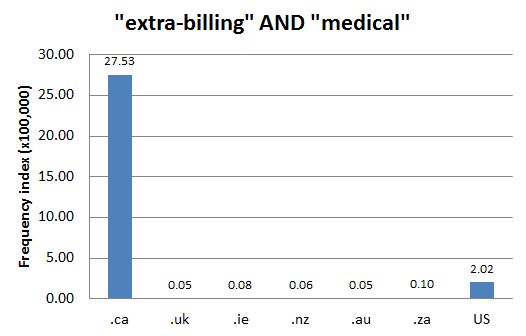DCHP-2
extra-billing extra billing DCHP-2 (March 2016)
1 n. — also attributively
direct user charges for medical services beyond the compensation offered by the government health-insurance program.
Type: 3. Semantic Change — According to the Canada Health Act, extra-billing means "the billing for an insured health service rendered to an insured person by a medical practitioner or a dentist in an amount in addition to any amount paid or to be paid for that service by the health care insurance plan of a province." Fears that a private health care system might weaken the public system (see medicare) have been a recurring and much-debated issue since the installation of universal health care in the late 1960s and early 1970s. Until 1977, the federal government matched (approximately) dollar for dollar the health care expenses of the provinces, while since then bulk payments have replaced the matched contributions (transfer payments). The change in compensation has, amid a climate of increasing costs, intensified the debate over extra-billing (see Canadian Encyclopedia reference). The term is used almost exclusively in Canada (see Chart 1).
See also Gage-5, s.v. "extra-billing", ITP Nelson, s.v. "extra billing", which is marked "Canadian".See also: medicare transfer payment
2 v. — present participle
See meaning 1.
Type: 3. Semantic Change —References:
- Canadian Encyclopedia s.v. Health Policy Accessed 16 Nov. 2015
- Gage-5
- ITP Nelson
Images:
Chart 1: Internet Domain Search, 1 Aug. 2012
